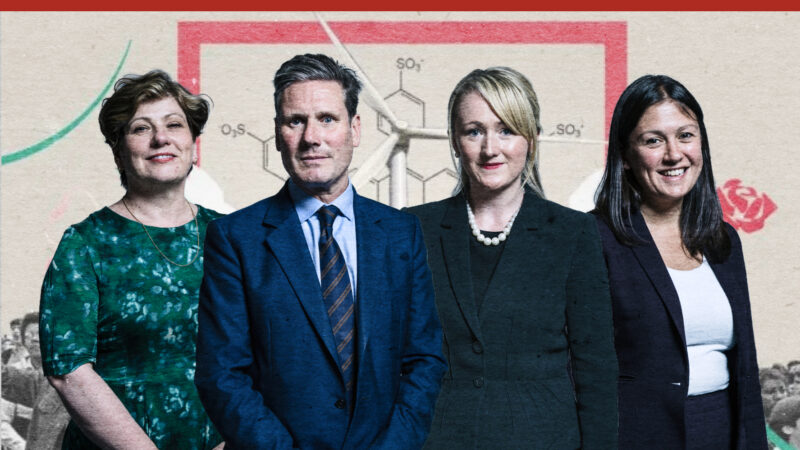
Labour’s leadership contest ultimately comes down to two questions: how are we going to win the next general election, and how will we address the political, economic and ecological crises our society faces? Fortunately, we already have a platform fit to meet that challenge, and one that unites us all.
At Labour conference in September, trade unions and Labour members of all stripes voted overwhelmingly in favour of a motion to deliver a truly radical Green New Deal. Every candidate in the leadership contest has at least paid lip service to this unifying agenda – and with good reason.
British politics has finally started to wake up to the climate emergency. As temperature records were shattered, landscapes burned and Extinction Rebellion joined the UK’s youth in the streets, more voters than ever said last summer that the environment was among their top concerns.
This has translated into strong public support for a Green New Deal. Polling during the general election campaign found that 63% of voters back these policies, with even huge numbers of Conservatives getting behind the rapid decarbonisation of our economy.
Voters of all backgrounds want a programme of public investment to address the climate emergency by delivering better public transport, cleaner air, green jobs, warmer homes and democratically owned energy. As polling has shown, a Green Industrial Revolution is strongly placed to win back support in the former ‘heartland’ seats lost in 2019 – providing the basis of a winning electoral coalition.
The climate crisis is the defining issue of our time, and Labour is uniquely placed to deliver the fair and democratic transition to a sustainable economy that we urgently need. Yet, during the 2019 campaign, the Green New Deal was just another policy on the list.
Siloed as a series of technical protocols in just one shadow cabinet brief, the Green New Deal’s potential to deliver a compelling social justice narrative and a vision of a better society was never realised. Policies like Warm Homes for All or a million green jobs were either unknown or distant and fanciful to most voters – with no cohering narrative and no basis in real-life struggle, our programme lost relevance.
A Green New Deal is crucial, not just to tackle the climate and ecological emergencies, but to reinvigorate our politics. Built on the principles of public ownership and community decision-making over the transition to a green economy, it has the potential to win back our heartlands and transform our society. If Labour’s 2019 manifesto suffered for prioritising economic transformation over political transformation, then the Green New Deal has the potential to achieve both.
Establishing ourselves as the credible party of climate justice will take grassroots organising and a coherent narrative. But we must start that work by holding our leadership candidates to the highest standards of climate justice. That is why Labour for a Green New Deal (LGND) has issued a challenge to every contender.
We have asked them for detailed answers to five key questions on how they will work with trade unions and communities to transform our economy so that it works for people and planet, not profit. We have challenged them to take part in a climate hustings, where members can test the rigour of their rhetoric.
We have announced a series of ‘scorecards’ that will mark each leadership hopeful across ten key areas of a Green New Deal, including democratic ownership, migrant justice and universal services. They will be assessed on the basis of their manifestos, contributions to hustings, answers to LGND’s five key questions and their track records, resulting in an overall score out of 100.
With the climate on the verge of cataclysmic tipping points and an international cabal of right-wing ‘strongmen’ committed to doubling down on fossil fuels, we cannot afford to weaken our ambitions. Preventing climate catastrophe has to mean public ownership across energy, water, transport and more to undertake the rapid decarbonisation which the market refuses to countenance, alongside a total end to all fossil fuel extraction.
What’s more, it means not resting on our laurels but organising now in workplaces, communities, local government and beyond to build the foundations of our new society. We stand ready to build a powerful movement for a radical Green New Deal from below, able to bring Labour back to power, tackle the existential threat of climate breakdown and build a new society of justice and equality. Now we need a leader fit to meet that challenge.




More from LabourList
‘SEND reforms are a crucial test of the opportunity mission’
Delivering in Government: your weekly round up of good news Labour stories
Labour place third in Gorton and Denton by-election as Greens gain seat